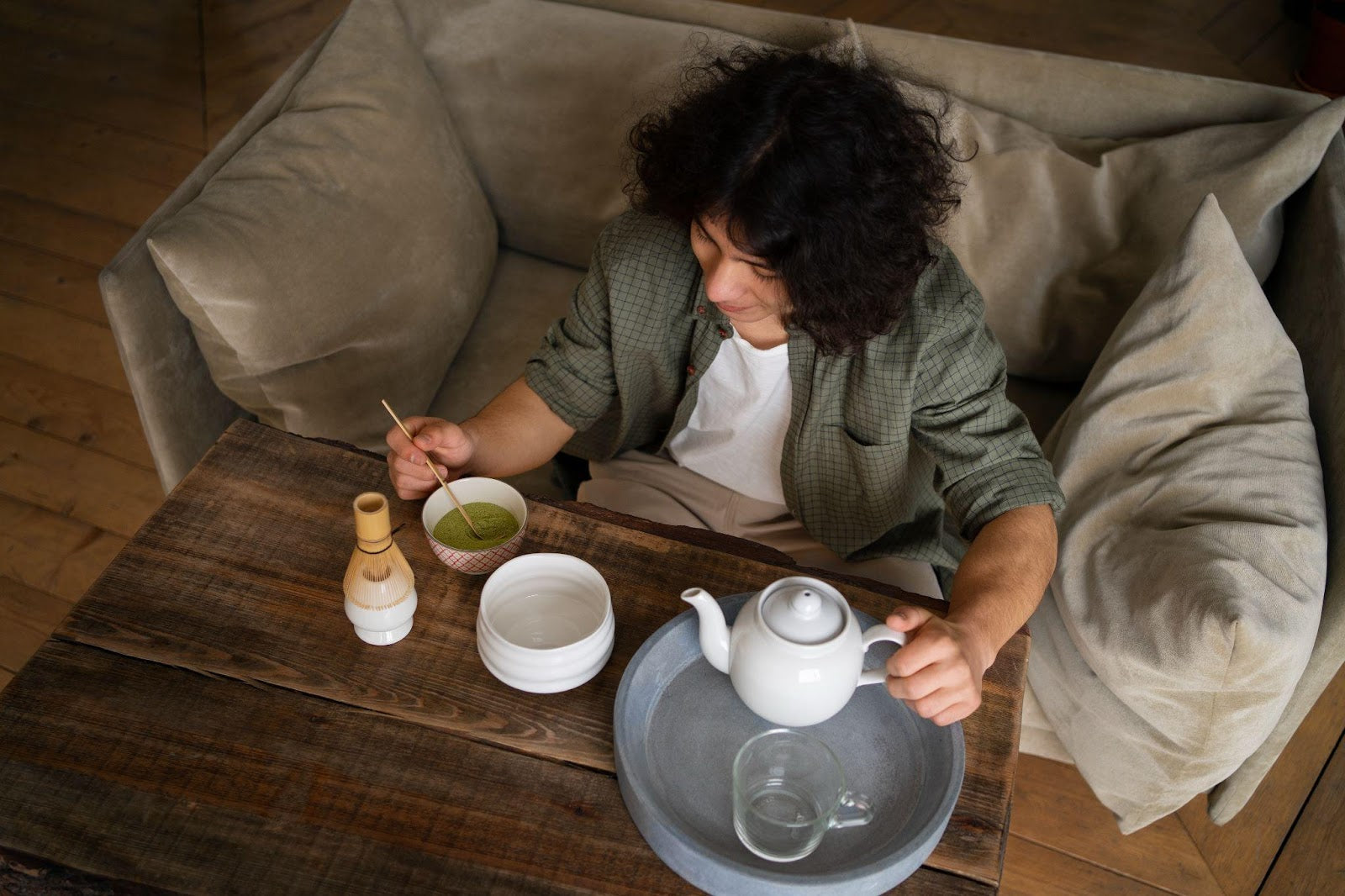How to Loosen Stress’s Grip on Your Daily Life
Stress doesn’t always crash in loudly. Sometimes it slips in quietly: a slight tension in your chest, your coffee going cold untouched, or waking up already braced for impact. It becomes a rhythm, invisible but heavy. But real relief doesn’t require a total life overhaul or a sudden spiritual awakening. It starts with intentional shifts, repeatable actions that soothe the nervous system without demanding perfection.
Make Mindfulness Short, But Daily
Research shows that just 10 minutes of daily mindfulness can noticeably lift mood, ease anxiety, and improve sleep patterns. The trick isn’t depth, but repetition; a short, dependable moment each day that brings your attention back to the now. It could be a sip of tea, the sensation of your feet on the floor, or noticing your breath as you wait for your computer to boot up. When practiced consistently, this kind of micro-mindfulness builds internal pause points. And those pauses can become the difference between spiraling and steadying.
Move Like You Mean It — Not Like a Machine
Forget punishing workouts. Even gentle movement helps, and regular workouts relieve stress by releasing endorphins, improving sleep, and giving your mind a physical anchor. A slow walk after lunch, dancing in your kitchen, or 5 minutes of stretching before bed — it all counts. The goal isn’t aesthetics or discipline. It’s nervous system regulation. Moving your body in ways that feel good tells your brain: I’m safe.
Schedule With Room to Breathe
Stress thrives in chaos. So one of the most overlooked forms of self-care is structure, a routine that reduces decision fatigue. According to mental health experts, having a predictable routine eases anxiety by giving your day shape and rhythm. That doesn’t mean every hour needs a label. Just block the non-negotiables, build in recovery space, and stick to start and stop cues. The stability alone can reduce the friction that fuels burnout.
Sip Your Way Into Calm
Incorporating herbal teas and caffeine-free tisanes from Light of Day into your daily routine can anchor a sense of calm and intentionality. These blends offer a restorative pause — a sensory ritual that softens the day’s tension without relying on stimulants. It’s not about the tea alone, but the act of brewing, holding, and sipping. That rhythm slows your breath, quiets the mind, and creates space. Whether it’s matcha in the morning, chamomile in the evening or rooibos mid-afternoon, choosing something that tastes like rest matters.
Pursue Purpose, Not Just Productivity
For busy professionals carrying chronic stress, flexible online health management degrees can offer a structured path to change. These programs don’t just teach, they redirect energy toward leadership, resilience, and long-term purpose in the healthcare sector. That shift can be deeply healing for those burned out by misalignment between daily tasks and deeper goals. Learning becomes more than credentialing — it becomes identity repair. Especially when life feels stalled, learning in motion feels like traction. If this resonates, you might consider an online school for healthcare as a next step toward professional clarity.
Let Light Do the Work
Your circadian rhythm isn’t just about sleep, it regulates hormones, mood, and energy levels. Exposing yourself to natural light, especially in the afternoon, helps recalibrate internal clocks and ease restlessness. That’s whyafternoon sunlight aligns your clock, even if it’s just stepping outside for 10 minutes. Think of it as charging your system. And unlike blue light at night, this form of light sends the brain the message: it’s okay to relax later. Consistency is the real trick: same light, same time, different day.
Prioritize a Support System
We talk about self-care like it’s a solo project. But stress is relational, and so is relief. One of the strongest buffers against long-term anxiety is social connection. And it’s not about how many people are in your life, it’s about the depth of the relationships you lean into.People who lean on trusted close relationships tend to recover from setbacks faster, sleep better, and show greater emotional resilience. When care moves in both directions, it becomes protective — like armor you don’t have to carry alone.
You don’t have to chase peace. You just have to stop feeding chaos. Each of these habits — whether a mindful sip, a walk, or a well-timed light exposure — works not because they’re trendy, but because they speak to how humans are wired. There’s no one-size fix. But if you start with what fits, and do it often enough, your body will remember how to feel safe. And once that happens, stress loses its grip.
Light of Day'sOrganic and Biodynamic farm-grown and hand-picked ingredients used in our teas and tisanes will bring calm to your cup, one small ritual at a time.
This post was written by our wonderful guest author, Kimberly Hayes. Nice one Kimberly! We appreciate you!

